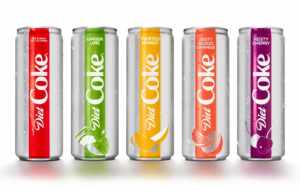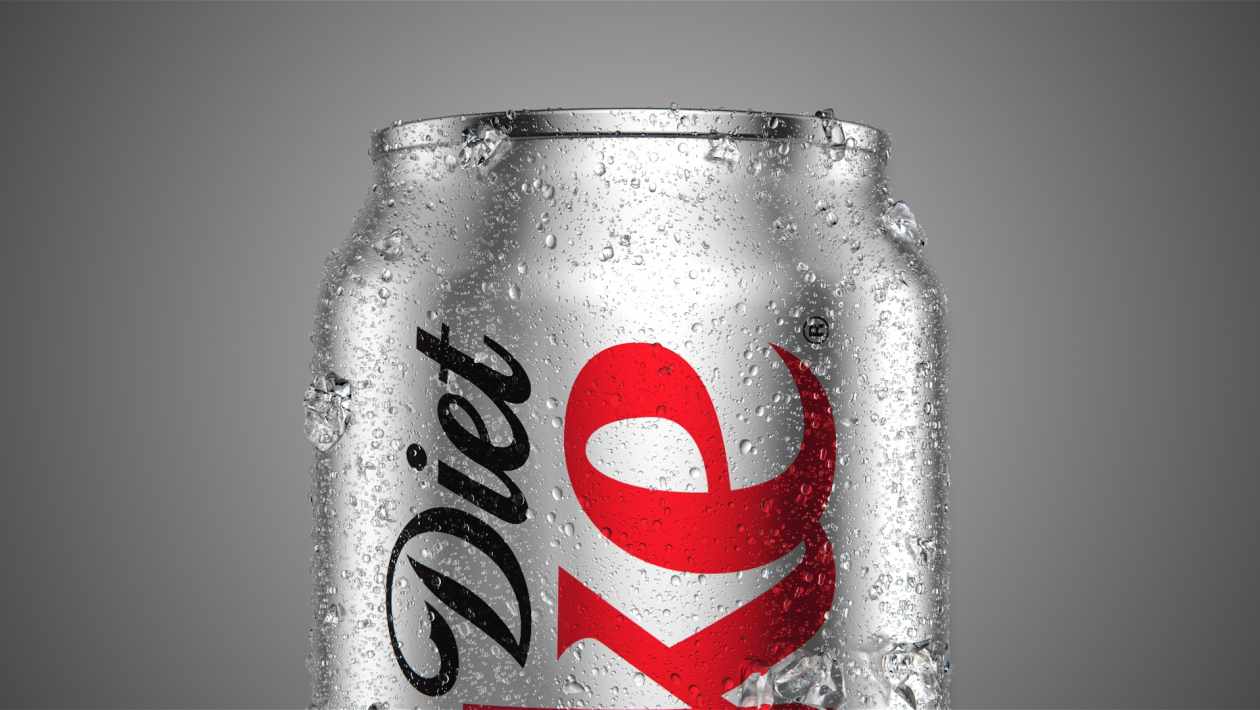There is a huge volume of sweeteners and caffeine in diet coke. Yet, many choose to consume diet soda daily. It might seem like a good alternative to the normal coke, which contains 65 g of sugar and 75mg of sodium in a small 591ml bottle. If you look closely at the nutritional chart, it would say that it contains 130% of the daily recommended amount of sugar. But, do you think diet coke is a better alternative?
Difference between caffeine in diet coke and normal coke
Table of Contents
A 335ml can of normal coke offers just 32mg of caffeine. On the other hand, the diet coke offers 42mg of caffeine. What does this huge volume of caffeine in diet coke do to your body? Let us compare it with a normal cup of coffee. A cup of coffee (237ml) contains 95mg of caffeine, which is almost twice as much as your diet coke.

Caffeine in diet coke is beneficial for a few. It helps to improve metabolism rate, exercise performance, and physical/mental alertness. However, there are some downfalls to it too. Caffeine is addictive, and each body could react to it differently. Caffeine has a definite association with depression and anxiety in children. Blood pressure increase, sleep cycle alteration, headaches, and other discomforts are common.
How much caffeine is damaging to your body? Unless you are pregnant, breastfeeding, or less than 18 years, you can safely consume 400mg of caffeine per day. However, experts recommend you restrict it to 200mg per day. So, two cups of coffee or four cans of diet coke would be a good choice.
However, the problem comes in satisfaction. A cup of coffee can keep you full for a considerable amount of time due to the presence of calories in it. However, the diet cola has zero calories, and it does not add to your nutrition requirements. Thus, you are more likely to be hungry a little after consuming diet coke. It will lead you to eat or drink more.
The sweeteners in diet coke
The common sweetener in Coca-cola is a mixture of acesulfame potassium and aspartame. First of all, there is no scientific proof for showing aspartame as a good or bad element. Most of the diet products contain aspartame. Your body will break aspartame into methanol, similar to breaking down fruits. In large quantities, methanol is bad for your body. However, even in those who regularly consume multiple diet cokes per day, the maximum permitted level of methanol is hard to reach.

You can consume 50mg per kg of your weight. Diet coke contains 185mg aspartame per can. Thus, if you are 68kg in weight, you can consume 18 cans of diet coke and still be within the safety level of methanol in your body. However, if you have a kidney condition or taking medicines for schizophrenia, it is best to avoid aspartame.
Are the sweetener and caffeine in diet coke good for weight loss?
The majority of the individuals who consume diet coke are the ones who want to lose weight. Well, the sweetener and caffeine in diet coke do not decrease your weight. But, will it help to maintain your weight? Artificial sweeteners help you to reduce calorie consumption without avoiding tasty food. However, it can lead to tooth decay and cavities.
Caffeine does not lead you to weight loss, but it will boost your exercise performance. It will, in turn, lead to weight loss. Moreover, caffeine is a good appetite suppressant. It reduces your desire to consume more food, thereby reducing calorie consumption. Caffeine increases your body’s idle energy consumption. Even when you are not exercising, your body burns a considerable amount of energy for digesting food, heat generation, and more. Caffeine would induce your body to spend more energy on those activities, thereby improve calorie burning level.
If you are consuming coffee as a caffeine substance, you will be adding sugar and milk/cream, which would increase your calorie consumption. On the other hand, the caffeine in diet coke comes without sugar.
Who should not drink?
Beyond young children, breastfeeding mothers, and pregnant women, diet coke might not be an ideal choice for many. It is best not to consume diet coke if you have any medical condition related to the liver, heart, brain, or kidney. Consuming one can of diet soda/ day increases the risk of Alzheimer’s disease and stroke by three times in people who are above 45 years.

Diet coke would increase skin dryness and make you prone to acne. If you regularly consume diet coke, make sure to replace a drink or two with a cup of water or tea. The drink also reduces bone density. Women who drank diet soda regularly are more likely to have lower bone density, leading to osteoporosis.
The diabetic dilemma
Overall, it might look like diet cola is a good choice for diabetic patients. However, in reality, if you are diabetic or prone to diabetes (family history, borderline diabetes, and others), it is best to avoid diet cola. The sweeteners in diet coke can reduce gut health. It would lead to weight fluctuation and might cause metabolic syndrome. These are the leading causes of type 2 diabetes. Many studies have proved the link between regular consumption of diet soda and diabetes risk.
Moderation is the ultimate key in consuming diet coke. If you believe you are prone to kidney, bone, heart, nerve, liver, or digestion disorders, it is best to limit it to the minimum. There are no proven results to link diet coke with cancer. If you wish to replace regular soda from your diet, diet cola is a good choice, but make sure to limit it to one or two cans a day. Please do not replace cola with diet cola during alcohol consumption. Mixing cola or any sweetened drink with alcohol will decrease alcohol levels in the blood. However, diet cola would increase alcohol absorption.

